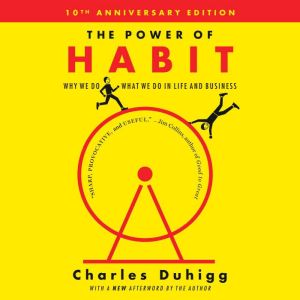

The Power of Habit
Why We Do What We Do in Life and Business
Author: Charles Duhigg
Narrator: Mike Chamberlain
Unabridged: 11 hr 10 min
Format: Digital Audiobook Download
Publisher: Random House Audio
Published: 02/28/2012
Categories: Nonfiction, Psychology, Self-help, Personal Growth, Business & Economics
Synopsis
“Few [books] become essential manuals for business and living. The Power of Habit is an exception.”—Financial Times
A WALL STREET JOURNAL AND FINANCIAL TIMES BEST BOOK OF THE YEAR
In The Power of Habit, award-winning business reporter Charles Duhigg takes us to the thrilling edge of scientific discoveries that explain why habits exist and how they can be changed. Distilling vast amounts of information into engrossing narratives that take us from the boardrooms of Procter & Gamble to the sidelines of the NFL to the front lines of the civil rights movement, Duhigg presents a whole new understanding of human nature and its potential. At its core, The Power of Habit contains an exhilarating argument: The key to exercising regularly, losing weight, being more productive, and achieving success is understanding how habits work. As Duhigg shows, by harnessing this new science, we can transform our businesses, our communities, and our lives.
With a new Afterword by the author
